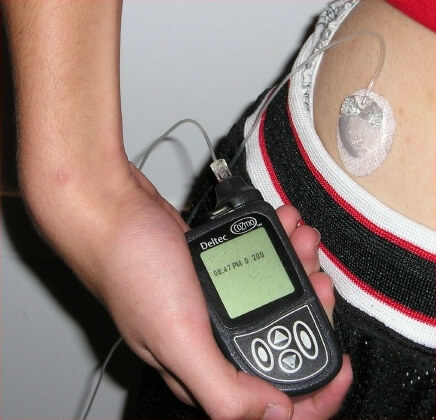In the marathon, which lasted for three days, the students were exposed to an entrepreneurship laboratory for technology development, and the mentors provided immediate feedback and constructive criticism

A smartphone application designed to help children with diabetes is the winning development in the Hacking Health entrepreneurship marathon, held at the Rappaport Faculty of Medicine. This application, known as GlucoGotchi, gives positive feedback and a reminder to diabetic children through a friendly character who responds positively to the injection and treatments.
The "spiritual father" of the marathon is the deputy dean of the Faculty of Medicine, Professor Uri Rosenshein, who teaches an entrepreneurship course at the faculty, and the two students who led the event are Yuval Barak-Korn (Medicine) and Vichy Sussman (Computer Science). The goal, according to them, was to provide the students with "a living entrepreneurship laboratory, where the students will be exposed for the first time to the experience of developing a venture under pressure."
"For five years we study at the faculty and in the hospitals, without being exposed to the technological and entrepreneurial world," says Yuval, who works as a physician's assistant in the internal medicine department at Rambam. "All the leading medical faculties in the world understand that this is where the future lies - in the combination of entrepreneurship, technology and medicine."
As part of the marathon, which is the first year of its existence, groups were formed that combined medical students with students from other faculties at the Technion. Each group was required to develop a unique technology for the life sciences industry.
120 students from first, second and third degrees submitted their candidacy for the event. The admissions committee examined each candidate based on his personal experience, his motivation to invest in medical development, and his willingness to settle for few hours of sleep during the three days of the marathon. The 60 lucky ones were divided into eight groups, each with two medical students. Twenty mentors, including entrepreneurs and investors, doctors and engineers, industry and academics, accompanied the teams voluntarily.
On the first day, the students invested most of their effort in choosing the appropriate idea. The next day at nine in the morning the marathon began, during which they met with doctors and mentors, prepared a business plan, conducted market surveys with patients and doctors in hospitals in Haifa, consulted via video conference calls, and developed the idea. The climax of the third day was a series of presentations in front of the panel of judges: the director of the Rambam Medical Center, Professor Rafi Biar; Director of the Hadassah Mount Scopus Medical Center, Dr. Esnat Levzion-Kareh; Head of the Medical Technologies and Infrastructure Administration at the Ministry of Health, Dr. Osnat Luxenburg; Dr. Benny Zaevi, managing partner at Tamir Fishman Ventures DFJ; and businessman and entrepreneur Kobi Richter, chairman of the life sciences committee at the organization of venture capital funds and founder of Medinol.
The judges treated all the projects seriously, and asked the contestants pointed questions, including ethical issues, marketing issues, the question of the development's advantage over competing companies and its suitability for an era in which every doctor will have a tablet. "I really liked the way you presented things," said Professor Biar in summing up the day. "It was a fascinating event. Your performances reminded me of the way Steve Jobs used to appear and present the latest development. I wish you to be the inventors of medical developments in the coming decade."
The projects, most of them in the field of hardware, were diverse. The NAKIT group offered a solution to the problem of infection-diseases in hospitals, which causes the death of approximately one hundred thousand people in the USA every year. The Genomic Revolution group has proposed software that will improve the genetic compatibility between couples wishing to have children. The LUNGIFLEX group offered a new and easy system for the treatment of asthma and cystic fibrosis patients. The SHAKEOUT group has offered a unique glove that will help people who suffer from tremors in their hands. First place, as mentioned, was won by the GlucoGotchi group - a name that combines the word "glucose" with the game "Tamguchi" - which offered a product that would make it easier for children with diabetes.
The event was organized by T2Med (Technion-Technology-Medicine) - the group responsible for promoting entrepreneurship and technology in the Faculty of Medicine - and is based on the 3DS ("Three Days Startup") format, which was developed in Texas. Rochit Shah from Texas, a lawyer by training and one of the five board members of 3DS, emceed the event.
